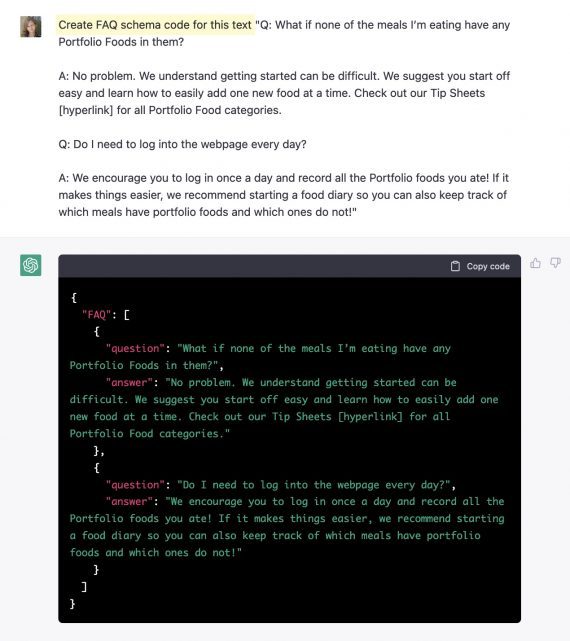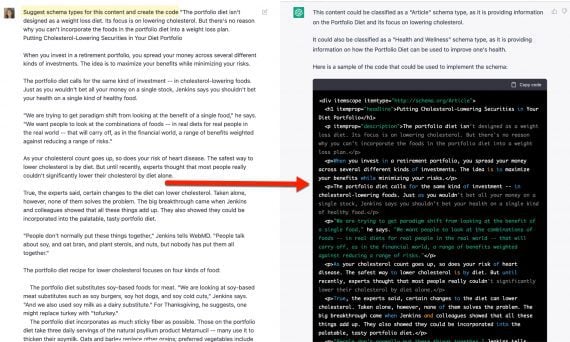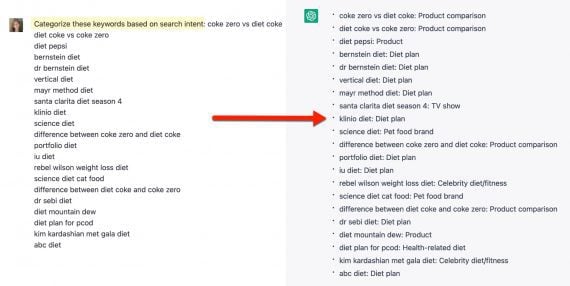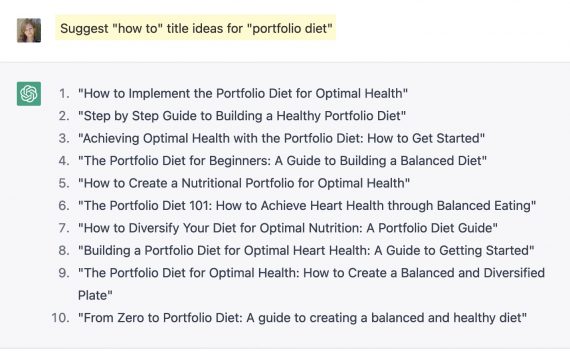Artificial intelligence is not new to search engine optimization. But the emergence of free or inexpensive AI tools such as ChatGPT, Jasper, and RankIQ has caused much angst, as all can produce optimized content at scale.
Google hasn’t published a definitive policy on indexing and ranking entirely AI-generated info. In its explanation of “helpful content,” Google merely advises against “extensive automation.” Google’s John Mueller is more direct, stating Google doesn’t want AI-generated material.
Nonetheless, AI tools are helpful beyond generating content. For example, the tool can analyze content and offer SEO recommendations!
Using screenshots from the soon-to-be-premium ChatGPT, what follows are five “safe” ways to use AI-powered automation in SEO.
Generate Schema Code
Schema.org markup helps Google understand a web page. It also facilitates rich snippets in organic search results. There’s no shortage of Schema generators, but ChatGPT is among the best as it requires little instruction, saving time. Simply copy-paste your content into the tool and ask for a specific Schema code.
Alternatively, copy-paste your content and let ChatGPT suggest Schema types. The tool can also generate HTML, CSS, and other types of code.
Improve Content
Grammar and spelling errors hurt usability and reflect poorly on a brand. Robust checkers such as Grammarly are a staple of writers and editors. But AI tools address more than grammar and spelling alone. They can rearrange an article, summarize it, add bullets, and even suggest subheadings.
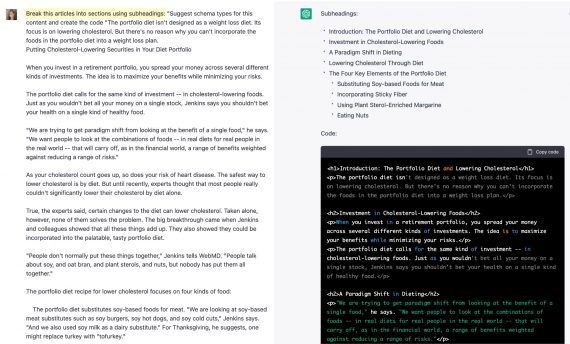
ChatGPT can rearrange an article, summarize it, add bullets, and even suggest subheadings. Click image to enlarge.
Create Meta Descriptions
Google ignores meta descriptions for organic rankings. But it does display those descriptions in search-result snippets. So ensuring all pages have a meta description helps control the appearance of snippets and thus click-throughs.
Using AI to generate a page summary can save time and will not presumably violate Google policies since the algorithm ignores it.
Ask ChatGPT to summarize a page in one or two sentences. The result is a draft meta description. Then edit it and add keywords, which appear in bold type in snippets when queried by searchers.

ChatGPT can summarize a page in one or two sentences, resulting in a draft meta description. Click image to enlarge.
Organize Keywords by Intent
Google attempts to understand a searcher’s intention when ranking pages in organic results. But it’s often unclear. For example, the query intent for “healthy meals” could be for restaurants, at-home dinner suggestions, or organic grocery stores.
SEO keywords differ depending on the intent. Generating those words and phrases manually can take much time and effort.
ChatGPT can handle this task quickly and effectively. Copy-paste a list of keyword ideas, and ask ChatGPT to organize it by search intent. The tool is less accurate on long lists, in my experience. So you may have to divvy the list into segments.
Generate Title Ideas
Creating click-worthy title tags can be challenging. AI tools can brainstorm ideas with little instruction or with a specific direction, such as “how to” content.
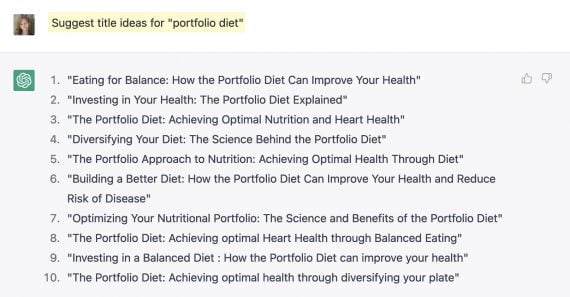
AI tools can brainstorm title tag suggestions, even with little instruction, such as this ChatGPT example for “portfolio diet” ideas. Click image to enlarge.
—

